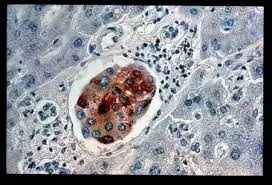
Algorithm identifies 165 genes that cause cancer
text_fieldsScientists from the Max Planck Institute for Molecular Genetics (MPIMG) in Berlin and the Institute of Computational Biology of Helmholtz Zentrum München developed an algorithm that identified 165 previously unknown genes responsible for cancer even if their DNA sequence has not changed. The research points out that disorganization of these genes can lead to cancer as all-new genes interact with known cancer genes.
Cancer is usually caused when abnormal cells go rampant and multiply to destroy organs and bodily functions. This unfettered growth is usually caused by the accumulation of DNA changes in cancer genes or oncogenes caused by mutations in these genes that direct cell development. However, only very few mutational genes are in cancers, which means that other factors cause the illness.
Named EMOGI (Explainable Multi-Omics Graph Integration), the algorithm explains the relationships in the cell mechanism that causes the gene to transform into oncogenes. The program integrates tens of thousands of data sets created from patient samples. It contains information about DNA methylation, the activity of individual genes and protein interactions within cellular pathways, and the sequence of data with mutations. With the already inserted data, the algorithm detects molecular patterns and principles that lead to the development of cancer.
"Ideally, we obtain a complete picture of all cancer genes at some point, which can have a different impact on cancer progression for different patients. This is the foundation for personalized cancer therapy," said Annalisa Marsico, lead researcher, in a press release.
Scientists stressed that EMOGI is not limited to cancer in theory and can be used to integrate various biological data and find similar complex pathogens such as metabolic diseases such as diabetes.
























